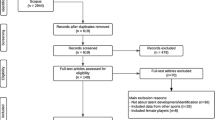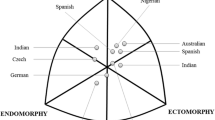Abstract
Many incentive contracts are based on subjective evaluations and contractual disputes depend on judges’ decisions. However, subjective evaluations raise risks of favouritism and distortions. Sport contests are a fruitful field for testing empirically theories of incentives. In this paper the behaviour of the referees in the Italian soccer (football) league (“Serie A”) is analyzed. Using data on injury (or extra) time subjectively assigned by the referee at the end of the match and controlling for factors which may influence it (players substitutions, yellow and red cards, penalty kicks, etc.), we show that referees are biased in favour of home team, in that injury time is significantly greater if home teams are losing. The refereeing bias increases greatly when there is no running track in the stadium and the crowd is close to the pitch. Following the 2006 “Serie A” scandal we test whether favouritism emerges towards teams suspected of connections with referees finding that these teams obtain favourable decisions. Social pressure by the crowd attending the match however appears to be the main cause of favouritism.
Similar content being viewed by others
References
Akerlof G (1980) A theory of social custom, of which unemployment may be one consequence. Q J Econ 94:749–775
Baroncelli A, Lago U (2006) Italian football. J Sports Econ 7(1):13–28
Becker G, Murphy KM (2000) Social economics: market behavior in a social environment. Harvard University Press, Cambridge
Bernheim D (1994) A theory of conformity. J Polit Econ 102:841–877
Carmichael F, Thomas D (2005) Home-field effect and team performance. J Sports Econ 6(3):264–281
Chiappori P, Levitt S, Groseclose T (2002) Testing mixed-strategy equilibria when players are heterogeneous: the case of penalty kicks in soccer. Am Econ Rev 92(4):1138–1151
Dohmen T (2005) Social pressure influences decisions of individuals. Evidence from the behavior of football referees. IZA Discussion Paper, No. 1595
Duggan M, Levitt S (2002) Winning isn’t everything: corruption in sumo wrestling. Am Econ Rev 92(5): 1594–1605
Ehrenberg R, Bognanno M (1990) Do tournaments have incentive effects. J Polit Econ 98(6):1307–1324
Garicano L, Palacios-Huerta I, Prendergast C (2001) Favouritism under social pressure. Working Paper NBER, No. 8376
Garicano L, Palacios-Huerta I, Prendergast C (2005) Favouritism under social pressure. Rev Econ Stat 87(2):208–216
Ichino A, Polo M, Rettore E (2003) Are judges biased by labor market conditions. Eur Econ Rev 47:913–944
Milgrom P (1988) Employment contracts, influence activities, and efficient organization design. J Polit Econ 96:42–60
Neale W (1964) The peculiar economics of professional Sport. Q J Econ 78(1):1–14
Nevill A, Balmer N, Williams M (1999) Crowd influence on decisions in association football. Lancet 353:1416
Nevill AM, Balmer NJ, Williams AM (2002) The influence of crowd noise and experience upon refereeing decisions in football. Psychol Sport Exerc 3:261–272
Posner R (1993) What do judges and justices maximize? The same thing everybody else does. Supreme Court Econ Rev 3:1–41
Prendergast C (1999) The provision of incentives in firms. J Econ Lit 37:7–63
Prendergast C, Topel R (1996) Favouritism in organizations. J Polit Econ 104:958–978
Sutter M, Kocher MG (2002) Favoritism of agents—the case of referees’ home bias. Papers on Strategic Interaction 28/2002, Max-Planck-Institute for Research in Economic Systems, Jena
Sutter M, Kocher M (2004) Favouritism of agents: the case of referees’ home bias. J Econ Psychol 25:461–469
Szymanski S (2003a) The assessment: the economics of sport. Oxf Rev Econ Policy 19(4):467–477
Szymanski S (2003b) The economic design of sporting contests. J Econ Lit 41(4):1137–1187
Tirole J (1992) Collusion and the theory of organizations. In: Laffont JJ (ed) Advances in economic theory. Cambridge University Press, Cambridge, pp 151–206
Tirole J (1999) Incomplete contracts: where do we stand?. Econometrica 67(4):741–781
Walker M, Wooders J (2001) Minimax play at Wimbledon. Am Econ Rev 91(5):1521–1538
Wallsten T, Barton C (1982) Processing probabilistic multidimensional information for decisions. J Exp Psychol Learn Mem Cogn 8:361–384
Author information
Authors and Affiliations
Corresponding author
Additional information
I would like to thank Francesco Aiello, Martin Brimble, Maria De Paola, Filippo Domma, Nicola Meccheri, Antonio Nicita, Michela Ponzo and two anonymous referees for useful comments. The usual caveats apply.
Rights and permissions
About this article
Cite this article
Scoppa, V. Are subjective evaluations biased by social factors or connections? An econometric analysis of soccer referee decisions. Empir Econ 35, 123–140 (2008). https://doi.org/10.1007/s00181-007-0146-1
Received:
Accepted:
Published:
Issue Date:
DOI: https://doi.org/10.1007/s00181-007-0146-1




